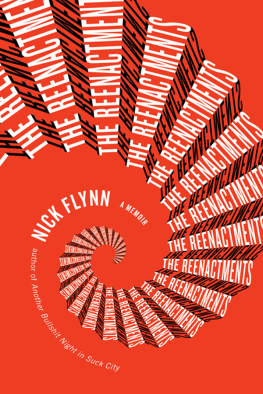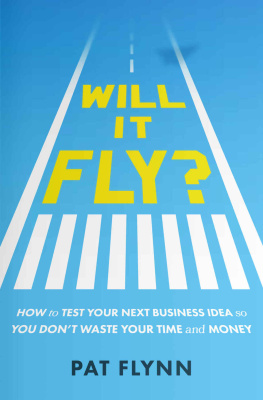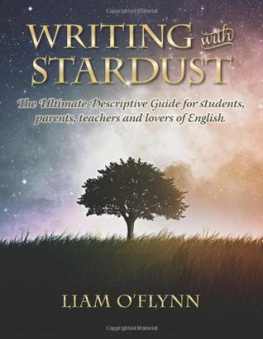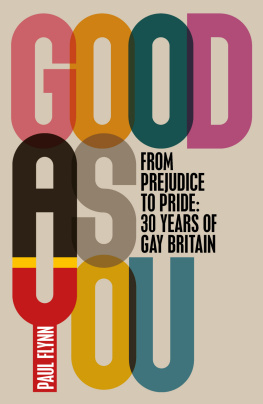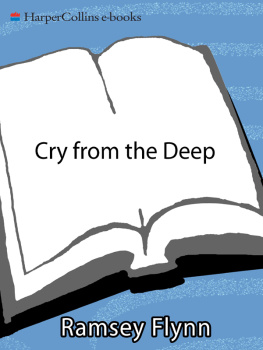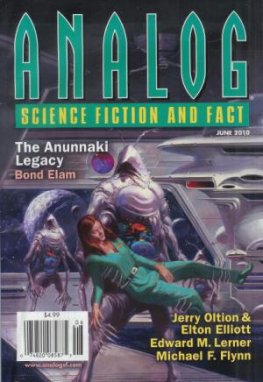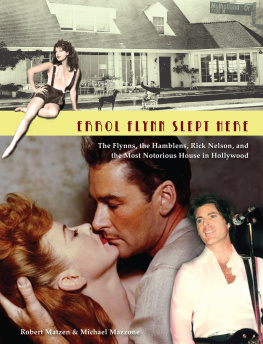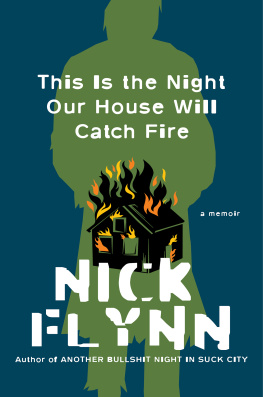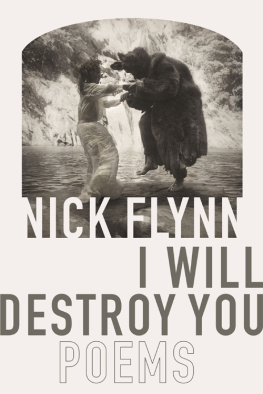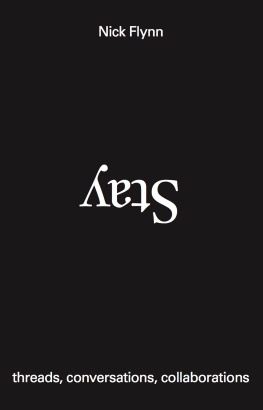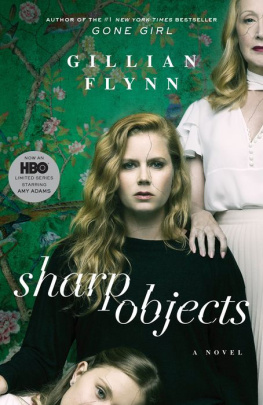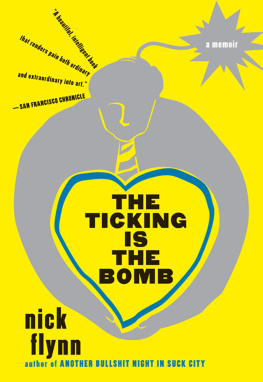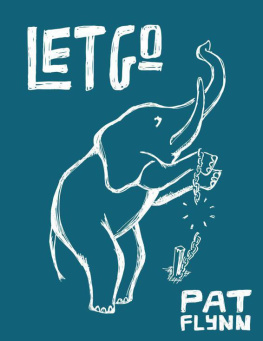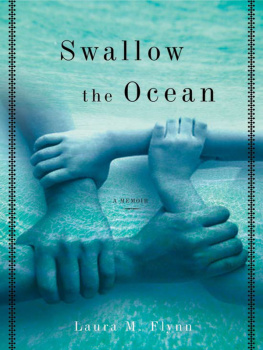

this book is dedicated to Jody Draper
in memoriam
& to Paul Weitz, Jonathan Flynn, & Robert De Niro
with deep thanks
disclaimer: This is a work of nonfiction which attempts to deal with the unknown. Some names have been changed.
... stop and listen to the bells. ( Pause. ) And so on. ( Pause. )
Be again, be again. ( Pause. ) All that old misery. ( Pause. )
Once wasnt enough for you. ( Pause. )
Beckett, Krapps Last Tape
Contents
The Captain Asks for a Show of Hands
The Ticking Is the Bomb
Alice Invents a Little Game and Alice Always Wins
Another Bullshit Night in Suck City
Blind Huber
A Note Slipped Under the Door (with Shirley McPhillips)
Some Ether
(2011) All hushed, seven of us huddle in a kitchen, stare into a monitor. Its about to start. The actress playing my mother (Julianne Moore) stares back at usshes in the middle of a living room, the room is just behind this wall, but I havent gone into the living room, not yet. A set of headphones hangs from an empty chair with my name on themDan points to them, points to my head. Its only the sixth day of shooting, we are in a house in Queens, the owner rents it out at times for films like this, films that contain flashbacks to 1970s smalltown America. This kitchenpaneling stamped to look like wood, avocado-green refrigerator, seamless linoleum floor that looks like tiny bricksis perfect. Its supposed to be my childhood home, but we will never step outside this house. Today and tomorrow are all interiorsafter that we will be gone. Julianne is soaking wet, having just failed to throw herself into the ocean. Or, rather, having failed to keep herself under the waves after she did. You will know this by the next scene, from the note she will writeI know it already, having read the script, having written the book, having been there the first time around. We are meant to imagine that the ocean is nearwalking distancenear enough for her to still be wet, which it was. Julianne stands there, waits, eyes downcast, looking toward the familiar carpet, a version of the wall-to-wall we once had (textured, harvest gold). At ACTION she begins to sob, or wail. I think of Saramagos Blindness , how no one was there, at the beginning of the universe, Gods hands ( hands? ) working the nothingness into the somethingness, yet everyone knows what happened.

ANTONIO Damasio, the clinical neurobiologist, in The Feeling of What Happens , offers this:
The neurobiology of consciousness faces two problems: the problem of how the movie-in-the-brain is generated, and the problem of how the brain also generates the sense that there is an owner and observer for that movie. The two problems are so intimately related that the latter is nested within the former. In effect, the second problem is that of generating the appearance of an owner and observer for the movie within the movie ...
Im sitting on my childhood couch (plaid), in my childhood home (Third Cliff), even though I havent entered that house in years. If I were fifteen Id be stoned, and if my mother came in she might be stoned as well. If this were my couch ( is this my couch? ). I ask Tom, who has something to do with set dressing, Was all this furniture here? He looks around: Some of it was . Heres the new thinking: the brain creates the mind . It seems obvious, once you think about it ( In this it resembles all the old thinking ). One way the brain does this, according to Damasio, is by creating images which are unconscious momentary patterns on sheets of neurons called maps. Unlike our usual map, though, these maps wont really help you to find your way, not out of this. Each is momentary, one small point in the house youve been wandering, lost, all these years.

HOW did I end up in Queens, in this house which is not my house, watching a woman who is not my mother (yet somehow is) reenact the last moments of her life? How? I said yes (yet I could have just as easily said no)its as simple as that. After all, how often are you offered the chance for a complete reenactment of the day of the disaster? After all, who doesnt feel, at times, like you are watching the movie being made of your life (if only you had just one more take things might have worked out better)? After all, whose childhood home doesnt feel like a prop, until you leave it, then it is the dream you enter, night after night.
The director (Paul Weitz) yells, CUT , and a frenzy of activity invades Juliannes solitudethe lights must be adjusted, the camera moved in closer. Hair redampened, makeup retouched. Then someone (not Paul) yells, SET , and just as quickly everyone vanishes. At ACTION Julianne begins to wail again, but this time in a way that is almost animala three-in-the-morning, dying-in-the-woods animal sound. Water drips from Juliannes sleeve onto the carpet. A lamp behind her bleeds light into the living room (strange term, living room )the window beside it, also bleeding.
Anne Carson, in her introduction to her translation of Sophocles Electra , catalogues Electras various cries throughout the play, each with its own significance. Let us consider how Electra constructs her screams . You know the story: Electras father (Agamemnon) is murdered by her mother (Clytemnestra) and her stepfather (Aegisthus). Electra declares, I cannot not grieve , and so she wails, rages, laments, despairs.
I think of this as I watch Julianne. I watch each take.
Then its over CUT . Paul goes to her, I can see them on the screen, he is telling her somethingabout tears, I imaginewhile a woman adjusts her hair. Then someone calls out, SET , and everyone, at once, vanishesmy mother is alone again, looking down at the carpet. At ACTION she holds herself this time as she sobs, and then she stops, stares into a middle distance for what seems forever ( For the dead, I see, feel no pain ) CUT. The costumer joins her onscreen, wraps a white terry-cloth bathrobe around her shoulders. Then she steps out of the frame of the monitor, and all that remains is an empty room. On her way out, on her way to her trailer, she passes close by me, but I do not reach out, I do not say hi, though we had spoken just yesterday, the first day she was my mother.

THE feeling of what happens the last thing my mothers hand would touch was a pen, the last words she would write were, I feel too much . She wrote these words, this phrase, three times
I feel too much
I feel too much
I feel too much
each letter getting larger as she wrote, until by the last page there was only room for these four words. Then nothing, then silenceno, not silence, nothe last thing her hand would touch wasnt a pen, wasnt a word, wasnt a note, no, thats not right.

DARK polyethylene filters are being taped to the windows, making it night. The actor playing me when Im eleven (Liam Broggy) is sitting beside me on the couch ( this looks nothing like my childhood home ). Were between shots ( this is how poor people live ), the lights are being moved ( except I did have this awful white paneling in my bedroom ), Yesterday, when we first met, Liam told me he wanted to be a writer. I was distracted by hismy, our (the?)mother (Julianne), who was standing a few feet away, holding a basket of laundry. I hadnt spoken to her yet, I didnt know if I could. She was about to read my notebook, the words I wrote, years ago, a story I was working on, which may or may not have set in motion her suicide. The notebook was hidden, misplaced, behind a pillow on the couch we are now sitting on. Liam asked me, What do you have to do to become a writer? I looked at him ( is this what people mean when they refer to their inner child? ). What do you have to do? You write, to be a writer you have to write.... My inner child, and what do I do? I snap, I bark, Im short. Now Im trying to make it up to him. I tell him I started out trying to write things that were like what I liked to readmysteries, science fiction, horror. Philip K. Dick, Vonnegut, Poe.
Next page
